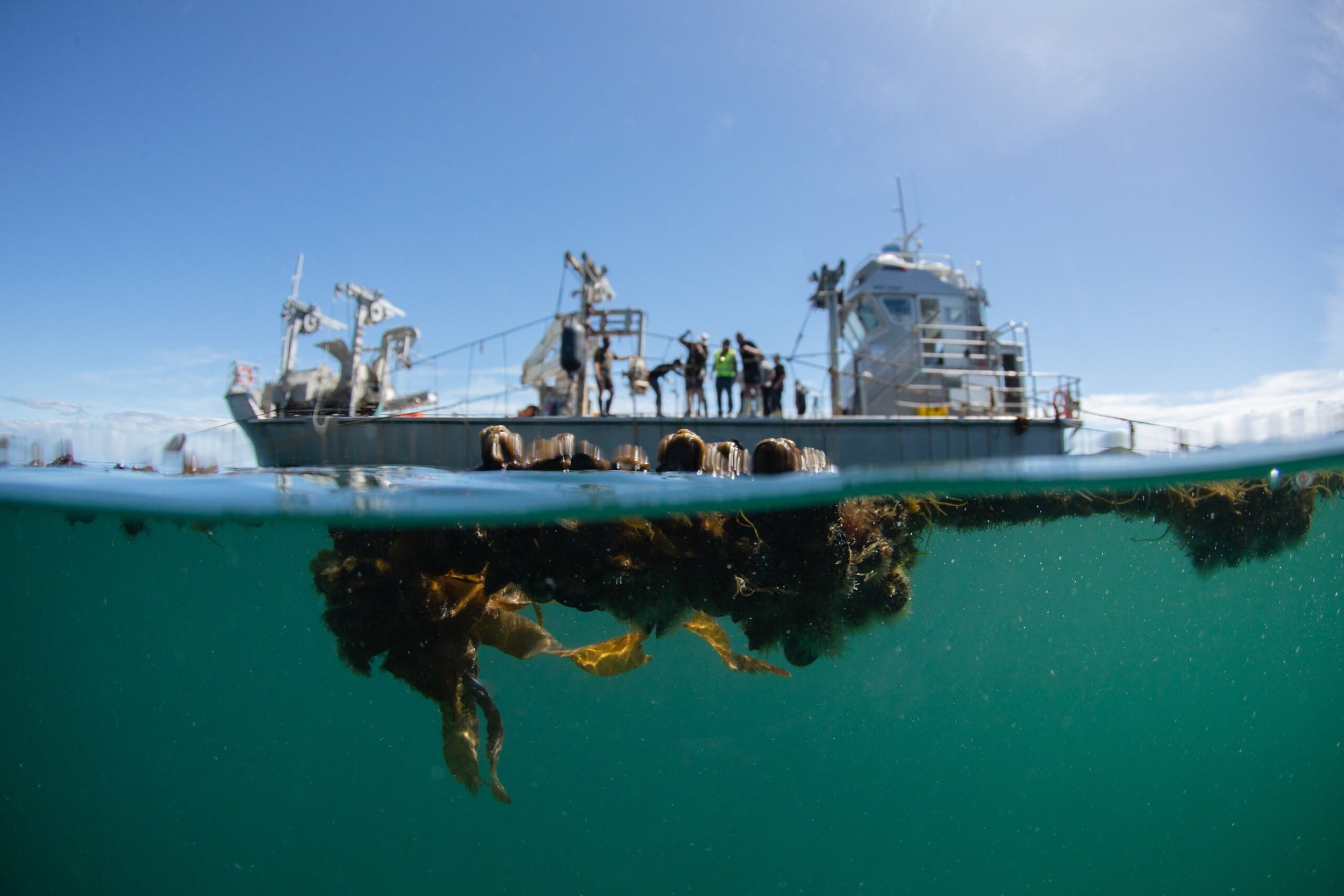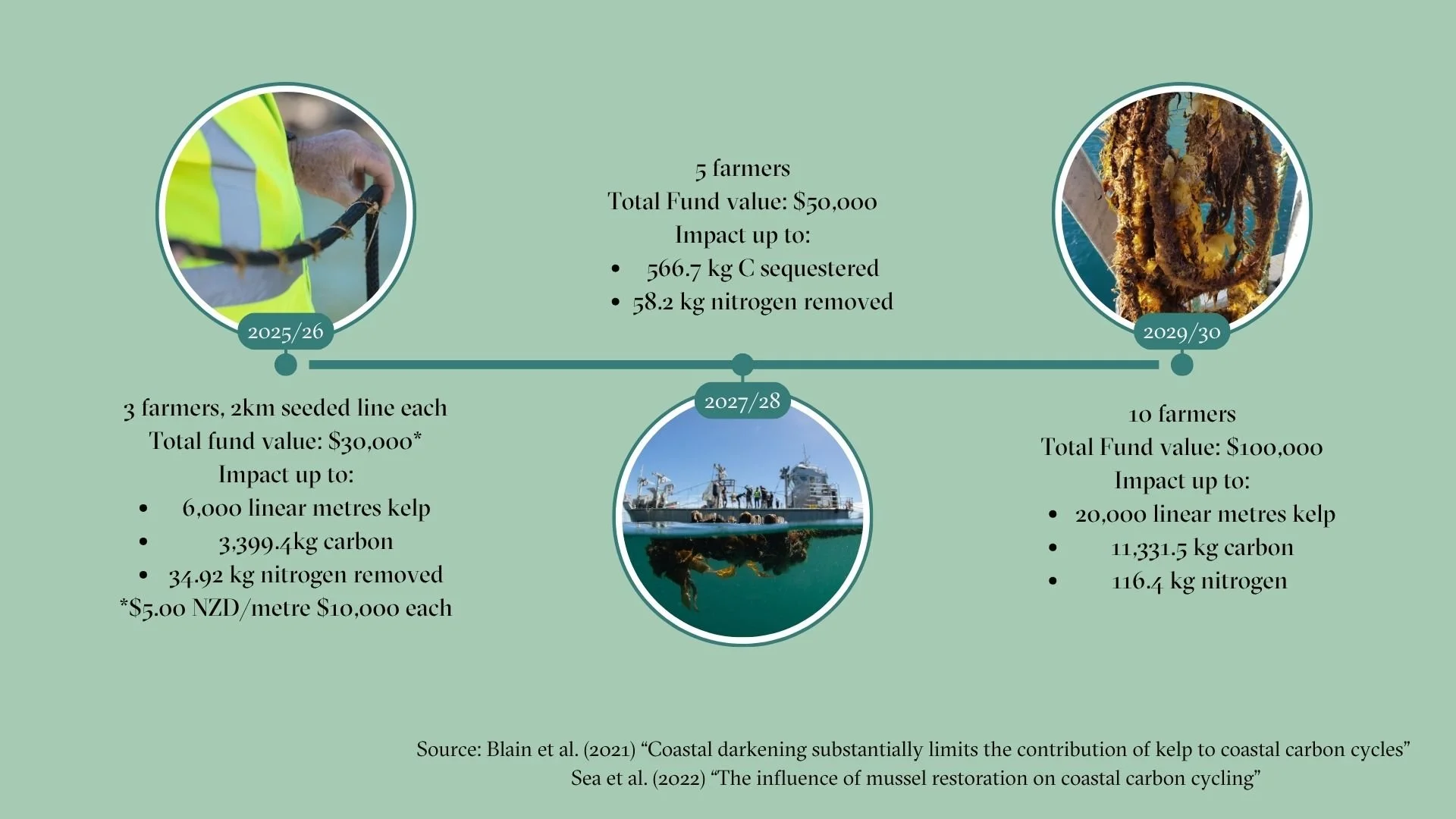
Regenerative Ocean Fund

How we’re working to address this
We’re supporting and incentivising the benefits brought by farming seaweed, through our Regenerative Ocean Fund. This aims to:
Support seaweed farmers and their positive environmental impact
Make a meaningful impact by funding activities via grants that would not happen otherwise
Support fishers and other marine farmers as they incorporate or adopt seaweed farming into their model
Support training and environmental data collection
Assist seaweed farmers’ growth to become independent suppliers
Estimated Environmental Services
Our goal is to support and incentivise seaweed farmers to grow their positive environmental impact.
Our oceans are in trouble and there’s hope on the horizon
The existential threats facing our coasts and oceans jeopardises our economy, our environment, and our people.
Seaweed farming is a path forward. Seaweed offers multiple ecosystem benefits and we believe in the people who take New Zealand’s first steps towards growing seaweed, as a commercial and environmental opportunity.
Our model
Seaweed Farming
Seaweed farming is a zero-input, polyculture model cultivating native seaweed and shellfish to restore marine ecosystems, enhance biodiversity, and absorb carbon and nitrogen.
This sustainable practice supports economic and climate resilience in vulnerable coastal communities.
Regenerative Ocean Fund
Greenwave Aotearoa’s Regenerative Ocean Fund provides results-based payments to marine farmers adopting the Regenerative Ocean Farming approach. This recognises the diverse ecosystem services provided by their practices while supporting new ocean farmers in their transition.
Through a bespoke subsidy of up to $10,000 per farmer annually, the Fund supports kelp cultivation, alongside monitoring, verification, and yield-based reporting. By doing so, it highlights positive environmental outcomes, promotes sustainable industry growth, and delivers economic and environmental benefits to local communities.







